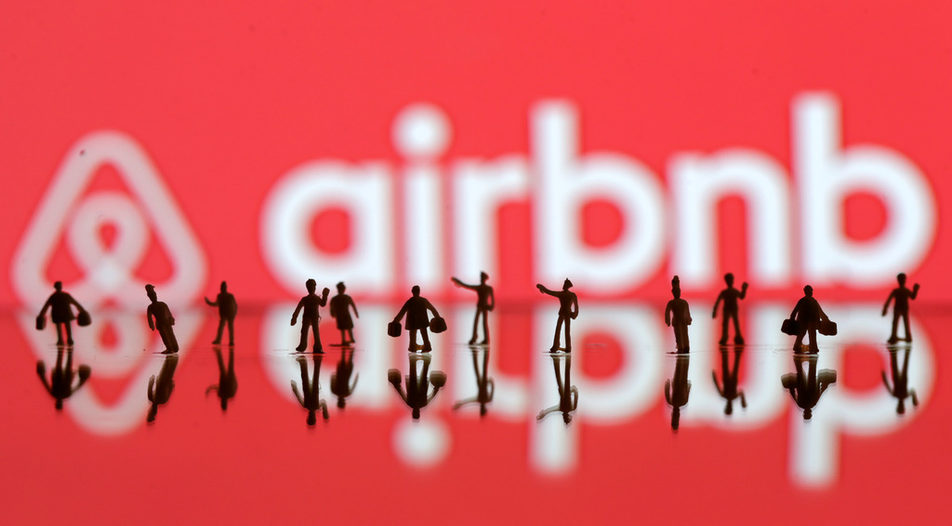Аfter Bulgaria banned Uber, Airbnb and Booking.com were slated to suffer the same fate but popular outcry forced the government to soften its stance. Instead of harsh administrative curbs, both websites and their peers offering short term accommodation services will need to pay a moderate tourist registration fee.
Airbnb and Booking.com offer apartment owners the opportunity to sublet their property to tourists. Since these are usually short stays, they are never registered under existing legislation and often taxes on the income are evaded. Even though taxes are often mentioned as the reason, the attack comes from the hotel industry. Over the last few years, new registrations at the Airbnb platform have boomed and according to data provided by the company, to date, there are slightly over 3300 apartment listings in Sofia (14 000 in the country). In comparison, the capital city has 12 500 officially registered hotel beds. This new sharing economy puts a serious dent in the markets of the traditional hospitality industry exactly when low-cost airlines made Sofia more accessible for foreign tourists.
The strike against short-term stays
In December, the ruling GERB party introduced two related legislative proposals. One required the owners of properties listed on Airbnb or Booking.com to register with the local authorities. The other said that at least half of all apartment owners in a building must agree to a property in it being rented out for a short-term stay. And all of this to be completed by mid-2020.
No motives were given, but it is worth noting that no such requirements were to be put in place for long-term renting of property.
The new rules would have required every apartment owner to register with the municipal authorities. The owners would have had to attach a document certifying that 50% of the neighbours in the property agreed. The latter requirement, though, was not to apply to designated aparthotels and tourist complexes.
"The goal is to create the necessary conditions that will aid compliance with regulations in the tourism sector," the proponents argued. During the deliberation, the chairman of the economic commission in parliament, Petar Kanev from opposition BSP expressed reservations about the ability of owners to collect the necessary signatures from neighbours.
A lesser restriction
Тhe proposed legislation sparked uproar and parliament swept it under the carpet. Instead, it equated the apartments for short-term rental to hotels. Consequently, their owners will be obliged to pay a tourist fee of 0.20 and 0.40 euro for every overnight accommodation.
Obviously, the change is of little value. Most apartment owners will not register their property anyway and unless municipalities actively pursue cooperation with AirBnB or Booking.com, the revenue from the new tax will be less than impressive. Even now hotels in Bulgaria fail to declare the real number of sleepovers, which is demonstrated by the mismatch between the National Statistical Institute data for hotel overnights and the municipalities' revenue from tourist fees.
The new regime will be short-lived because the European Court of Justice has ruled that Airbnb is an information service and as such it does not fall under EU property regulations. Tourism Minister Nikolina Angelkova stated that sanctions will not start applying immediately and member states will be given a period to adjust to any problematic legislation, which is a strange logic when adopting a brand new law.
No designation of noisy and quiet zones in resorts
Another key proposal in the tourism sector was rejected on its second and final reading in parliament. It allowed resorts to offer product zoning. The idea, authored by the tourism ministry, aimed to give resorts the opportunity to designate zones for different types of tourism, like party tourism or family vacations. The amendment fell through when GERB and their junior partner in the government coalition NFSB introduced two corrections for its dismissal.According to the newly introduced amendments, the national resorts will be designated by the government under proposals by the Ministry of Tourism.
Аfter Bulgaria banned Uber, Airbnb and Booking.com were slated to suffer the same fate but popular outcry forced the government to soften its stance. Instead of harsh administrative curbs, both websites and their peers offering short term accommodation services will need to pay a moderate tourist registration fee.
Airbnb and Booking.com offer apartment owners the opportunity to sublet their property to tourists. Since these are usually short stays, they are never registered under existing legislation and often taxes on the income are evaded. Even though taxes are often mentioned as the reason, the attack comes from the hotel industry. Over the last few years, new registrations at the Airbnb platform have boomed and according to data provided by the company, to date, there are slightly over 3300 apartment listings in Sofia (14 000 in the country). In comparison, the capital city has 12 500 officially registered hotel beds. This new sharing economy puts a serious dent in the markets of the traditional hospitality industry exactly when low-cost airlines made Sofia more accessible for foreign tourists.












